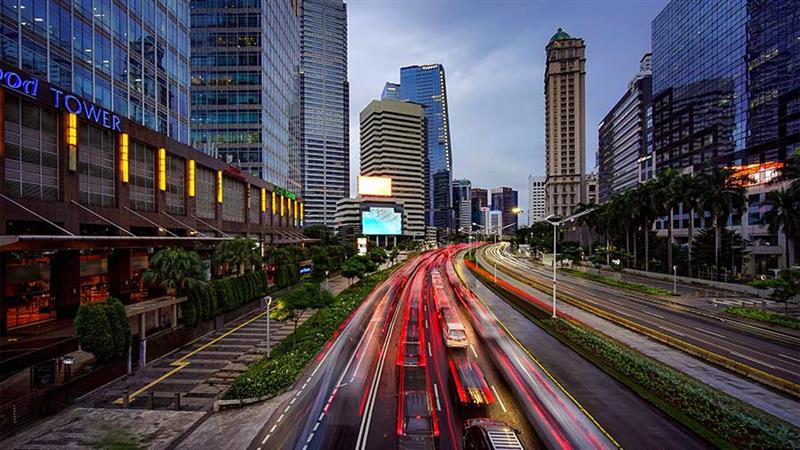Indonesia has introduced Government Regulation 28 of 2025 on Risk-Based Business Licensing. This reform replaces the 2021 framework and now governs all new investment and licensing decisions. The regulation is designed to accelerate approvals and make the licensing process more predictable while also raising the bar for ongoing compliance by foreign and domestic businesses operating in Indonesia.
The government has pursued these reforms in the context of ambitious investment targets. In the first quarter of 2025, Indonesia recorded approximately 230.4 trillion rupiah (US$14.5 billion) in foreign direct investment. This represents nearly half of the government’s full-year goal of 1,905 trillion rupiah (US$119 billion).
By modernizing its licensing system, the government is signaling to investors that it intends to maintain momentum by reducing administrative uncertainties and addressing bottlenecks that have previously slowed project implementation.
The scope of the licensing system has been expanded from 16 to 22 business sectors. Newly added sectors include trade and legal metrology, the creative economy, geospatial information, cooperatives, investment, and electronic systems and transactions. Existing groupings have also been reorganized. Environment and forestry are now regulated separately. Electronic systems and transactions have been unbundled from the telecommunications and broadcasting cluster. These adjustments reduce ambiguity for investors who must map their business activities to KBLI classifications before entering the market.
The regulation restructures licensing into a defined sequence, bringing greater certainty to the order of approvals. Companies must first obtain basic requirements such as spatial conformity or KKPR, environmental approval, building approval or PBG, and a certificate of worthiness or SLF before they can apply for a business license. All these steps are now processed within the OSS system, eliminating parallel workarounds that created confusion under the old framework.
For foreign investors, this reorganization clarifies the critical path from land acquisition through to operations and allows project financing and construction to be scheduled with greater confidence.
Environmental compliance has been reinforced through specific technical requirements that must be addressed before approvals are issued. Companies must now demonstrate compliance on matters such as wastewater management, air emissions, hazardous waste handling, and traffic impact analysis. Projects located within industrial estates, special economic zones, free-trade zones, or free ports may rely on zone-level environmental approvals, provided their operations align with the zone’s environmental plan and shared facilities are used where relevant.
This approach makes location choice a strategic factor since operating within a zone can reduce the regulatory burden compared to greenfield sites.
To reduce uncertainty, GR 28 of 2025 introduces the principle of deemed approval under which approvals are automatically granted in the OSS system if authorities fail to meet statutory deadlines for complete applications.
For example, KKPR assessments are subject to a 20-working-day deadline after which the approval is considered issued.
This mechanism allows investors to plan with assurance that processing delays will not indefinitely postpone project milestones.
The regulation also addresses activities that support a company’s core operations. Clear rules now apply for licensing functions such as product distribution, warehousing, groundwater use, special terminals, and standardization services.
These provisions ensure that investors must scope compliance requirements across their entire supply chain and not only for the main business activity.
By clarifying the licensing of support services, the regulation helps companies anticipate obligations that could otherwise disrupt logistics or ancillary operations.
The enforcement framework has been broadened. Authorities can issue warnings, suspend activities, impose administrative fines, exercise administrative police powers, and revoke licenses.
Revocation may be triggered by breaches of licensing law, binding court decisions, or the termination of land rights.
These measures underline that compliance is no longer a one-time hurdle at the entry stage but an ongoing responsibility that extends across the life of the investment.
To manage the changeover from the previous system, applications already submitted through OSS before mid-2025 may continue under the old framework for a limited period that is capped at four months. Companies that made filings before the change are also required to update their data in OSS to ensure validity under the new rules.
For foreign investors, reviewing and updating these records should be treated as a compliance priority alongside new project planning.
The table below highlights the most important differences between the 2021 rules and the 2025 regime, showing where processes have been clarified, expanded, or tightened.
Area
GR 5 of 2021
GR 28 of 2025
Sector Coverage
Covered 16 sectors
Covers 22 sectors, including the creative economy, geospatial information, cooperatives, investment, and electronic systems and transactions
Licensing Stages
Sequencing is not clearly defined
Requires prerequisites such as KKPR, environmental approval, building approval, and certificate of worthiness before a business license can be issued
Environmental Rules
General obligations without detailed technical checks
Tied to specific technical checks, with exemptions available in certain zones such as industrial estates and special economic zones
Time Certainty
No safeguard on processing times
Introduces deemed approvals, such as the 20-working-day deadline for KKPR
Support Activities
Limited recognition of supporting functions
Expressly licenses activities such as warehousing, distribution, and standardization
Enforcement
Narrow enforcement tools and limited penalties
Expanded sanctions, including warnings, suspensions, fines, administrative police measures, and revocations
Separate from GR 28 of 2025, the Ministry of Investment has circulated a draft regulation that would introduce higher capital thresholds for foreign-owned companies.
The draft proposes a minimum total investment above 10 billion rupiah (US$628,000) per KBLI per project, a minimum paid-up capital of 2.5 billion rupiah (US$157,000) per PT PMA, and a 5 billion rupiah (US$314,000) threshold for certain technology startups in special economic zones.
As the regulation is still in draft form, these thresholds do not yet apply. Investors should treat them as policy signals rather than binding obligations while continuing to monitor for final enactment.
For foreign investors, the licensing reforms provide an opportunity to achieve faster approvals and greater certainty, but they also heighten the importance of compliance. Predictability has improved through sequenced licensing and deemed approvals, while enforcement has become more stringent. Companies that front-load due diligence on zoning, environmental, and supporting activities will be best placed to take advantage of the streamlined system. The proposed capital thresholds, while still unofficial, highlight the government’s intent to channel foreign investment into larger-scale projects, a shift that boards should weigh carefully when evaluating entry strategies.
Our free webinars are packed full of useful information for doing business in ASEAN.
Meet the firm behind our content. Visit their website to see how their services can help your business succeed.
Subscribing grants you this, plus free access to our articles and magazines.
Subscribe to receive weekly ASEAN Briefing news updates,
our latest doing business publications, and access to our Asia archives.
Subscribe now to receive our weekly ASEAN Edition newsletter. Its free with no strings attached.
Not convinced? Click here to see our last week’s issue.
Type keyword to begin searching…






Leave a Comment